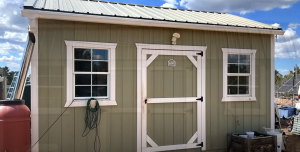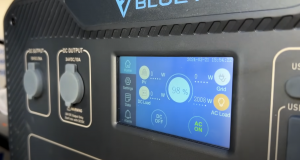Sustainable Refrigeration & Cooling Solutions
Sustainable refrigeration solutions are increasingly important in reducing environmental impact and improving energy efficiency. One effective approach is the use of roto-molded coolers, which are designed to offer superior insulation, reducing the need for frequent cooling cycles. These coolers, like those reviewed on the Coolers On Sale Website are made through a rotational molding process that creates durable, energy-efficient containers capable of maintaining cold temperatures for extended periods. This minimizes energy consumption and prolongs the freshness of perishable goods, making them ideal for outdoor activities, emergency preparedness, or off-grid living.
Refrigeration & Portable Solutions
 In addition to roto-molded coolers, high-efficiency refrigerators are another key element in sustainable refrigeration. These refrigerators utilize advanced technologies such as variable-speed compressors, energy-efficient insulation, and smart temperature controls to reduce electricity use while maintaining optimal cooling performance. Many modern models also incorporate eco-friendly refrigerants that have a lower global warming potential (GWP) compared to traditional hydrofluorocarbons (HFCs). When combined, these innovations contribute to a more sustainable approach to refrigeration, lowering carbon footprints and reducing waste while ensuring that food and beverages are kept fresh with minimal environmental impact.
In addition to roto-molded coolers, high-efficiency refrigerators are another key element in sustainable refrigeration. These refrigerators utilize advanced technologies such as variable-speed compressors, energy-efficient insulation, and smart temperature controls to reduce electricity use while maintaining optimal cooling performance. Many modern models also incorporate eco-friendly refrigerants that have a lower global warming potential (GWP) compared to traditional hydrofluorocarbons (HFCs). When combined, these innovations contribute to a more sustainable approach to refrigeration, lowering carbon footprints and reducing waste while ensuring that food and beverages are kept fresh with minimal environmental impact.
Off-Grid Cooling Options To Consider
Sustainable cooling options for off-grid living are essential for minimizing energy consumption while maintaining comfort and preserving resources. One of the most effective strategies is the use of passive cooling techniques, which rely on natural processes to regulate temperature. These can include architectural designs that maximize airflow, such as strategically placed windows, skylights, and ventilation shafts, or the use of thermal mass—materials that absorb heat during the day and release it at night—to stabilize indoor temperatures. In combination with shading strategies, like planting trees or using retractable awnings, passive cooling can significantly reduce the need for mechanical cooling.
 For more active cooling solutions, solar-powered systems offer a sustainable option for off-grid cooling. Solar refrigerators, fans, and air conditioning units can be powered by photovoltaic (PV) solar panels, which provide a reliable and renewable energy source. These systems are designed to be energy-efficient, using advanced technologies like variable-speed compressors or evaporative cooling systems, which use less electricity than traditional systems. Additionally, thermoelectric coolers, which use the Peltier effect to transfer heat between two different materials, can be a low-energy alternative for small-scale cooling needs.
For more active cooling solutions, solar-powered systems offer a sustainable option for off-grid cooling. Solar refrigerators, fans, and air conditioning units can be powered by photovoltaic (PV) solar panels, which provide a reliable and renewable energy source. These systems are designed to be energy-efficient, using advanced technologies like variable-speed compressors or evaporative cooling systems, which use less electricity than traditional systems. Additionally, thermoelectric coolers, which use the Peltier effect to transfer heat between two different materials, can be a low-energy alternative for small-scale cooling needs.
Roto-molded coolers also provide an off-grid solution for keeping food and beverages cool without relying on electricity. These coolers are highly insulated, making them effective for maintaining low temperatures for extended periods without frequent need for ice or refrigeration. Together, these sustainable cooling solutions allow for comfortable living off the grid, reducing environmental impact while providing reliable and energy-efficient cooling options.
Eco-friendly Energy Saving

Eco-friendly energy-saving tips for homesteads focus on reducing energy consumption while promoting sustainability and self-sufficiency. One of the most effective strategies is improving energy efficiency through better insulation and airtightness in the home. Sealing gaps around windows, doors, and walls, and using high-quality insulation materials can significantly reduce the need for heating and cooling, which are major energy expenditures. Additionally, installing energy-efficient appliances such as LED lighting, low-flow faucets, and Energy Star-rated refrigerators and washing machines can further lower electricity and water usage.
Another key approach is harnessing renewable energy sources like solar and wind power. Installing solar panels or small wind turbines on the homestead can provide a reliable, renewable energy supply, reducing dependence on fossil fuels and lowering electricity bills. Solar water heaters and solar ovens can also be used for heating water and cooking, minimizing the need for traditional electricity or gas-based systems.
Rainwater & Solar
Rainwater harvesting and water conservation techniques are also important for reducing energy use, as heating water can be one of the most energy-intensive tasks in a home. By collecting and storing rainwater, homesteaders can minimize the need for electric water pumps and reduce water consumption. Furthermore, planting native or drought-tolerant plants around the homestead can lower water usage and reduce the energy needed for irrigation.
 Lastly, investing in energy-efficient heating and cooling systems, such as wood stoves, passive solar heating, or geothermal systems, can further enhance sustainability. These alternatives are less reliant on grid energy and can help maintain a comfortable living environment while reducing carbon footprints. By incorporating a combination of these eco-friendly practices, homesteads can significantly reduce their environmental impact and create a more sustainable, energy-efficient lifestyle.
Lastly, investing in energy-efficient heating and cooling systems, such as wood stoves, passive solar heating, or geothermal systems, can further enhance sustainability. These alternatives are less reliant on grid energy and can help maintain a comfortable living environment while reducing carbon footprints. By incorporating a combination of these eco-friendly practices, homesteads can significantly reduce their environmental impact and create a more sustainable, energy-efficient lifestyle.

